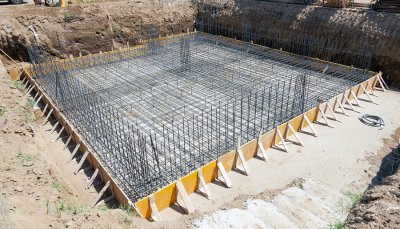Everything to know about House Demolition
If you want to learn everything you need to know about house demolition, it pays to become as educated as possible on the topic. Demolition is a dangerous occupation, and if you’re not willing to take that risk, don’t bother getting a job in this field. House demolition can involve hazardous materials such as explosives and bulldozers. All of these require special training and extreme care, so if you plan on getting involved in house demolition, make sure that you’ve done your homework.
The first thing to know about house demolition is safety. It’s always a good idea to do some research before you get started, just as you would any major undertaking. There are plenty of online resources for safety information, from federal and local occupational safety and health agencies to construction site safety manuals and brochures. Once you’ve gathered a lot of information, and you feel comfortable with the house demolition you’re about to embark upon, contact either the Occupational Safety and Health Administration (OSHA) or another reliable source for OSHA information. These organizations have resources that will help you understand and comply with employer safety and health regulations, which are particularly important for people working in the construction field.
Before you start tearing things down, make sure you’re aware of all laws and regulations in your state or county. If you’re unsure about anything, contact a lawyer. Don’t be hesitant to call in experienced professionals when you’re concerned, either. They can provide you with valuable information and ensure your safety. Make sure they are licensed and insured, and that you’re dealing with a responsible demolition contractor.
Before you start tearing things down, read your building permits and follow all local requirements. Demolition is a highly regulated business, and even with proper planning and preparation, you could face serious consequences if you don’t adhere to local codes. You may also be required to remove debris immediately after the demolition is complete. If you’re unsure about any requirements, consult a local expert or contact the county or state engineering offices.
If you’re tearing down a house that’s not already occupied, make sure the homeowner leaves before you start. Leaving homeowners in the dark can lead to dangerous situations. It can also cause problems for paramedics, fire officials, and law enforcement. Remember, you might not know everything about house design and construction and how to work safely around dangerous materials. Leave everyone in the building the space of a few feet, especially if there are kids.
Before you begin to tear down a house make sure you comply with all local building codes. These codes will dictate everything, from the type and disposal of your waste and debris to the equipment you use. Also, these laws will govern where you can operate. For example, it’s illegal to operate a demolition business near a residential area, at least according to some jurisdictions. But you can still do some of your work from home, so make sure you have a drop-off and pick up station in the area where you’ll be working.
Once you have located your drop-off location and storage facility, all the information you need to know about house demolition should be clear. You’ll need a friend or family member to act as a go-between for you and the homeowner. They should meet with the person responsible. This could be a neighbor, friend, or family member. Also, you will need to have a way of collecting the materials that you’ll need for the demolition. You can use a variety storage containers, or leave the property empty while you collect the materials.
Once everything to know about house demolition has fallen into place, you can contact your local authorities. They’ll help you decide what needs to be done and will tell you when everything is safe to leave. Depending on the location of the property, demolition may not be allowed. However, you’ll find that most cities allow demolition by a private party. If it is allowed, you may have to remove the debris yourself.



